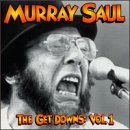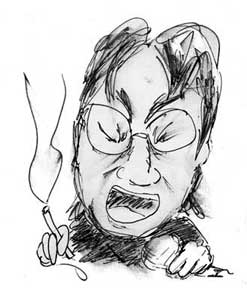…nonviolence is the answer to the crucial political and moral question of our time – – the need for man to overcome oppression and violence without resorting to violence and oppression. Civilization and violence are antithetical concepts….[N]onviolence is not sterile passivity, but a powerful moral force which makes for social transformation. Sooner or later all the people of the world will have to discover a way to live together in peace, and thereby transform this pending cosmic elegy into a creative psalm of brotherhood. If this is to be achieved, man must evolve for all human conflict a method which rejects revenge, aggression and retaliation. The foundation of such a method is love.
He also said:
I refuse to accept the cynical notion that nation after nation must spiral down a militaristic stairway into the hell of thermonuclear destruction. I believe that unarmed truth and unconditional love will have the final word in reality. This is why right temporarily defeated is stronger than evil triumphant. I believe that even amid today’s motor bursts and whining bullets, there is still hope for a brighter tomorrow. I believe that wounded justice, lying prostrate on the blood-flowing streets of our nations, can be lifted from this dust of shame to reign supreme among the children of men. I have the audacity to believe that peoples everywhere can have three meals a day for their bodies, education and culture for their minds, and dignity, equality and freedom for their spirits. I believe that what self-centered men have torn down men other-centered can build up. I still believe that one day mankind will bow before the altars of God and be crowned triumphant over war and bloodshed, and nonviolent redemptive good will proclaimed the rule of the land. “And the lion and the lamb shall lie down together and every man shall sit under his own vine and fig tree and none shall be afraid.?? I still believe that We Shall overcome!
Hint: it’s not about black and white, it’s about the haves and have-nots. And along the same lines, a press release from PRKA written by George Saunders.

 My fiction teacher in undergrad bugged me for almost three years about
My fiction teacher in undergrad bugged me for almost three years about  I’ve eaten two Christmas dinners with Murray Saul, and I can tell you, he’s a helluva guy.
I’ve eaten two Christmas dinners with Murray Saul, and I can tell you, he’s a helluva guy.